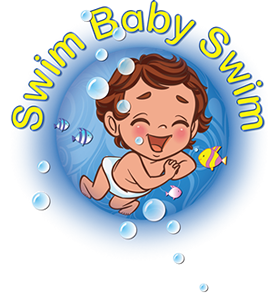This is one of those questions that has many answers but at the same time no answer… I realize that sounds like an oxymoron, but there is no definitive time when your child will “finally swim”. It’s more of a process built around small building blocks and of course water safety.
Like most things in the developmental process, all children develop at their own pace and swimming is no different. Individual characteristics and of course external influences and factors all have an impact on how they take to the water and ultimately learn to swim.
As mentioned above learning to swim is a process and is most effective when a strong foundation is set. This foundation usually centers around the introduction to water and water safety, this is ideally done when the Little Swimmer is under the age of one years old. The earlier a child is introduced to water the better, as not only will they learn to love and respect the water, their bodies will get an all-round exercise and stimulation with physical, social and psychological benefits.
Baby swimming is a key introduction to the wonderful world of water, and it is as complex as it is simple. Babies as young as a few weeks or months old can propel themselves forwards or upwards due to the natural swimming reflex, known as the amphibian reflex. This is the motion or fish –like movement babies are capable of doing to propel themselves (unassisted) to the surface. As they progress within a baby swimming program, they then learn to ‘swim’ from teacher to parent, whereby they move their bodies, kick their legs and pull their arms in a paddling fashion, made easier as the inconvenience of gravity is removed. If taken regularly and from an early age to swimming lessons, babies can achieve this and many more safety skills before their second birthday.
Toddler swimming programs follow on from where baby programs finish off. A good baby program will allow your Little Swimmer to be confident around the water and be comfortable submerging their face, and in time even blowing bubbles. Often these course are high energy, using songs and nursery rhymes to create a fun-filled environment, but at the same time learning a core life skill. This foundation will help your toddler to advance on their journey a lot quicker and more confidently.
As we get older, we learn to process things through reason and evaluating risk. This starts at an early age and that is why it is often tricky to introduce swimming to toddlers and in particular putting their little faces into the water or allowing themselves to float. They have learnt to “fear” the water, as it is an unknown element. By introducing your child early on to swimming, you ‘side step’ this as they are already comfortable with water as they understand it a lot better. If these skills are introduced and mastered as a young baby, they become second nature and the process of “learning to swim” easier and more enjoyable.
All group baby and toddler swimming program are fun and interactive and lay a great foundation for the ”Learn to Swim” Programs which follow on from these. The ”Learn to Swim” Program is all about stroke refinement, i.e. to make their swimming a little more pleasing on the eye. A good and progressive baby and toddler program will have your Little Swimmer propelling themselves around the pool, but also enjoying the joy that only water can bring.
The question as to when a child learns how to swim strokes with the correct breathing and timing, all depends on his or her physical, motor, cognitive, emotional and social development. The ability to concentrate on certain tasks, to understand these tasks and then carry them out, plays a huge role in learning and mastering swimming strokes. -as does their individual confidence and coordination.
This is where the “Learn to Swim” phase comes in and is generally a 1-2-1 tuition. Maturity and willingness to learn is expected roughly around the age of 5-6 years old, when all the hard work of introducing strokes, water safety and building confidence pays off. Around this age the swimming teacher will focus on stroke correction and stamina.
So don’t expect your little swimmer to be a Ryk Neetling or a Penny Heyns by the 1st, 2nd or even the 20th lesson, with a lot of praise, encouragement and a progressive swimming course they will learn to love, respect and above all have fun whilst learning one of the most important life skills. Your child will surprise you when you least expect it, so stay consistent and positive and before you know it you will be embarrassing your children at the local galas….
